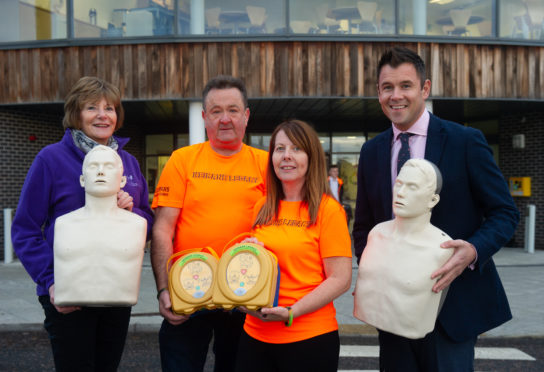A Moray charity formed following the death of a teenager has been appointed to deliver lifesaving skills in the region’s schools.
Keiran McKandie, from Miltonduff near Elgin, died after being hit by a car while cycling in March 2016.
Since then, the Elgin Academy pupil’s family have devoted themselves to fundraising for defibrillators to donate to community groups across the north-east.
Yesterday Moray Council appointed the charity, Keiran’s Legacy, to run CPR training for every secondary school pupil before they leave.
Meanwhile, the British Heart Foundation is also providing free training kits for classrooms with other equipment due to be funded by Keiran’s Legacy and the Gordon and Ena Baxter Foundation.
Sandra McKandie, Keiran’s mum, handed over manikins and training defibrillators to Elgin Academy yesterday.
She said: “Keiran’s accident demonstrated that there is a lack of knowledge and fear regarding helping someone in the event of a life-threatening situation.
“The education of young people will reduce this inability to act and become part of their normal learning.
“We will continue to demand change for the benefit of all and to reduce the chance of other families suffering the torment of a loved-one not coming home.
“The charity is not only providing CPR training but the use of a defibrillator to all Moray secondary school, which we aim to achieve across all regions.”
Campaigning from the family also led to a squad of police cars in the north-east carrying defibrillators – a scheme later introduced to the Highlands as well.
Moray Council made a commitment to the British Heart Foundation earlier this year to ensure CPR training was given to all children in its schools.
Figures from the charity estimate that 3,500 cardiac arrests happen outside hospitals every year in Scotland with the chance of survival diminishing by 10% for every minute that passes.
David McColgan, the British Heart Foundation’s senior policy manager, said: “Far too many lives are lost in this country when people suffer a cardiac arrest out of hospital, partly because too few bystanders have the expertise or confidence to perform CPR.
“Training youngsters in school will help change this.”
